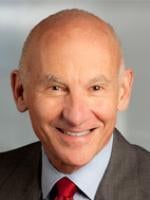On July 3, 2017, the United States Court of Appeals for the Eighth Circuit struck down a decision of the National Labor Relations Board (“NLRB” or the “Board”) in which the Board ruled that employees who disparaged Jimmy Johns’ products were engaged in protected concerted activity.
As part of an organizing campaign against a Jimmy John’s restaurant franchise (Jimmy John’s), the Industrial Workers of the World (“Union”) sought sick leave for employees. The Union employees posted images of Jimmy John’s sandwiches on community bulletin boards, stating that: MANY JIMMY JOHN’S WORKERS DON’T GET PAID SICK DAYS. SHOOT, WE CAN’T EVEN CALL IN SICK. WE HOPE YOUR IMMUNE SYSTEM IS READY BECAUSE YOU’RE ABOUT TO TAKE THE SANDWICH TEST.” The Union also distributed a press release that stated “… Jimmy John’s workers have reported having to work with strep throat, colds and even the flu.” Attached to the release was a letter from employees complaining that “by working sick, we are jeopardizing the entirety of [the company’s] image and risking public safety.” Union supporters then disseminated throughout the area a revised sick day poster listing the owner’s phone number and inviting calls to “LET HIM KNOW YOU WANT HEALTHY WORKERS MAKING YOUR SANDWICH.” The owner received numerous calls from people who thought it was unsafe to eat at Jimmy John’s. After these activities, six workers who coordinated the effort were fired.
The NLRB Administrative Law Judge determined that the employees were engaged in protected concerted activity, as their communications related to a labor dispute and were not “so disloyal, reckless, or maliciously untrue as to lose the Act’s protections.” A divided panel of the Board affirmed. But the Appeals Court denied enforcement of this portion of the Board’s Order, and ruled that the employees’ conduct was so disloyal as to exceed the boundaries of protected activity. Relying upon a prior Board decision styled Jefferson Standard, the Court reasoned that the employees’ conduct was unprotected because they were urging consumers to boycott Jimmy John’s because the restaurant was offering a shoddy product to the consuming public, rather than because it was purportedly being unfair to its employees. The mere reference to a labor dispute, said the Court, did not save the employees’ conduct.
In addition, the Court rejected the Board’s subsequent construction of Jefferson Standard that the employee’s public criticism must evidence an “evil motive” to lose the protection of the Act. Rather, it is the means of the criticism at issue, not the purpose that counts. The Court also rejected the Board’s interpretation of Jefferson Standard that employee disparagement of an employer’s product is given blanket protection when it is tied to a labor dispute. Instead, disloyal statements by employees may lose the Act’s protection even without a showing of actual malice, with the critical inquiry being whether the employees were targeting their employer’s labor practices or the quality of its product or services. In the former, customers are being asked not to patronize the employer because labor practices are unfair and a subsequent settlement removes the reason for customers not to return. In contrast, disparaging a product as unsafe, unhealthy or shoddy brings harm that outlasts the labor dispute.
Here, even though the purpose of the protest was to win sick days for employees, the protest was unprotected because the employees attacked the quality of Jimmy John’s product and customers were persuaded not to eat there because they might get sick – the “equivalent of a nuclear bomb in labor-relations.”
Employers that may become embroiled in labor disputes may now have added authority to attack employee statements that disparage their products. However, employers should expect that the NLRB will not adhere to the decision of the Eighth Circuit, given the Board’s policy of non-acquiescence. Therefore, employers should seek counsel when deciding to discipline or terminate employees who engaged in similar speech and activities.




 />i
/>i

